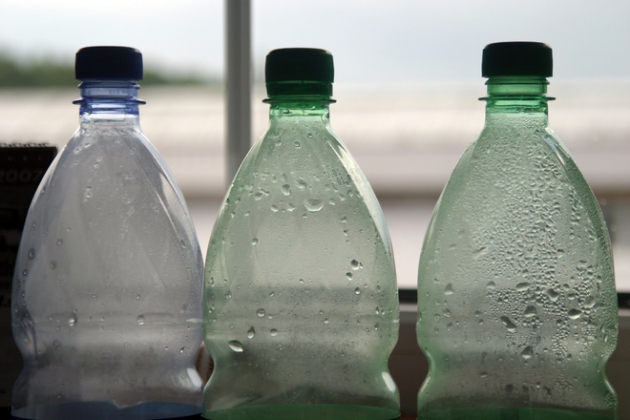With more than 30 years’ experience in the residential and commercial water treatment industry, Mark Nelson is a Class 1 Drinking-Water Operator and a CBWA (Canadian Bottled Water Association) Certified Plant Operator. As founder and president of Nelson Water in Ottawa, Mark focuses on dealing with challenging water treatment system designs for problem water. He also heads the largest water bottling plant in the city of Ottawa with a delivery network throughout the Valley.
Store Bought Bottled Water vs. Home Water Treatment Systems
With the ever-rising costs of running a household, many homeowners are concerned about the expense of buying bottled water. However, there are many options these days, and there is no need to feel the burden of buying bottled water for you and your family if you choose not to. In home water treatment systems can provide an efficient and effective alternative, delivering clean, safe drinking water that may be cheaper in the long run than store bought bottled water.
Understanding the Systems
When you begin to research residential water treatment systems, you may find the wide selection of options to be somewhat overwhelming. While each of these systems is designed to treat tap water and improve its quality, it is important to understand the basics of each technique used to determine which is best suited to your particular needs.
Activated Carbon Filtration
The most common form of water filtration uses activated carbon filters. These filters can be used to remove unpleasant odors or unpalatable tastes. They can also be used to do away with certain organic chemicals, which may be harmful, however, activated carbon filters tend to be ineffective to remove bacteria or inorganic chemicals. This means that this type of filtration is often used in conjunction with other methods. This type of filter is available in a number of forms including pour through counter top appliances such as pitchers, faucet attachments, under-counter units and whole house systems.
Reverse Osmosis
Reverse Osmosis is considered to be the gold standard and most effective method of complete and total water treatment. Water is forced through a semi permeable membrane, which captures any dissolved minerals. These types of systems generally feature pre and post filters to remove any sediment and lighter organic chemicals, which would damage the sensitive membrane filter. This makes reverse osmosis very effective at removing a wide variety of pollutants including nitrate, chlorine, lead and detergents. Reverse osmosis water treatment systems (or RO) are available as a countertop or under sink model, both of which can provide the most economic solution, creating clean safe drinking water for less (based on quantity consumed) than the price of bottled water.
Distillation
The oldest and simplest form of water treatment is distillation. This involves water being heated to create steam with the resulting vapor being collected as distilled water. As the steam rises, most chemicals, viruses, bacteria, chemicals and other pollutants are left behind before the vapor condenses back into water. Distillation water treatment is available in the form of countertop appliances or as a built-in unit. Built-in units offer greater convenience, but they tend to be far more costly. The truth is built-in distillation filter units tend to be the most expensive systems on the market.
With increasing concerns about the environmental impact of disposing of plastic PET bottles, not to mention the potential danger of hazardous chemicals like PBA leaching from plastic bottles into the water, domestic water treatment systems are becoming an even more attractive alternative to store bought water. With the efficiency and effectiveness offered with today’s technology, it is now possible to obtain clean and safe drinking water all in the comfort of your own home. By selecting the right system, you can effectively reduce your household expenses without compromising on the quality of your drinking water.

